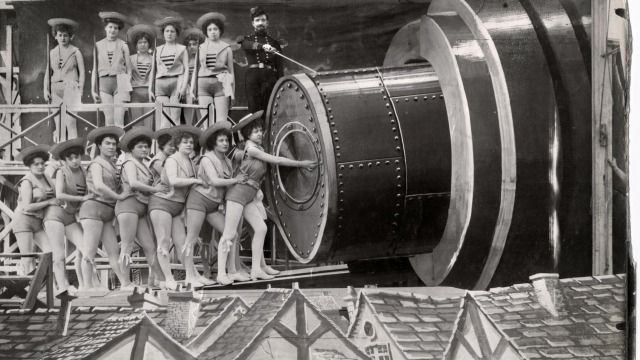The Lunar Origins of Cinema: Georges Méliès and Le Voyage dans la Lune

Since the early days of cinema, the moon has been an enchanting muse. The science of filmmaking was invented by the Lumière brothers, who débuted their cinématographe camera to astonished audiences in 1896. Yet it was their fellow Frenchman Georges Méliès, and his experimentations with short filmmaking, which gave rise to the notion of cinema as art.
Méliès’ 1902 Le Voyage dans la Lune (Journey into the Moon), with its iconic image of a moon with a human face, captures the essence of the early days of cinema; Voyage was both a technological marvel and an artistic achievement.
The film camera and the moon have shared a storied history ever since, from the 1969 footage of the moon landing captured at the ACT’s Honeysuckle Creek to contemporary science fiction and beyond. Reading the history of cinema through lunar motifs offers a new way of understanding the entangled relationships between science and culture, technology and art, the real and the imagined, our desire to control nature and our eternal fascination with the unknown.
Join Dr Gemma King, Lecturer in French Studies and French cinema specialist in the School of Literature, Languages and Linguistics, to learn more about the lunar origins of cinema and Georges Méliès’ ground-breaking film.
Talk: 6:15-7:15pm
Drinks and food: 7:15-8pm
About the series
Presented by the ANU College of Arts and Social Sciences and Humanities Research Centre, Works That Shaped The World is an engaging series of talks exploring humankind's great achievements and astonishing creations. Marking the 50th Anniversary of the Apollo 11 landing in 1969, the inaugural 2019 series explores the moon through topics ranging from Shakespeare and cinema, to environmental humanities and Pythagoras. Find out more about the series and subscribe to the podcast at cass.anu.edu.au/wtstw
Subscribe to the Podcast
The Works That Shaped The World podcast lets you enjoy these fascinating talks anywhere, anytime, and share them with others. Listen and subscribe now at Simplecast.
Location
Kambri Cultural Centre, University Avenue
Speaker
- Dr Gemma King
Event series
Contact
- Humanities Research Centre02 6125 4357